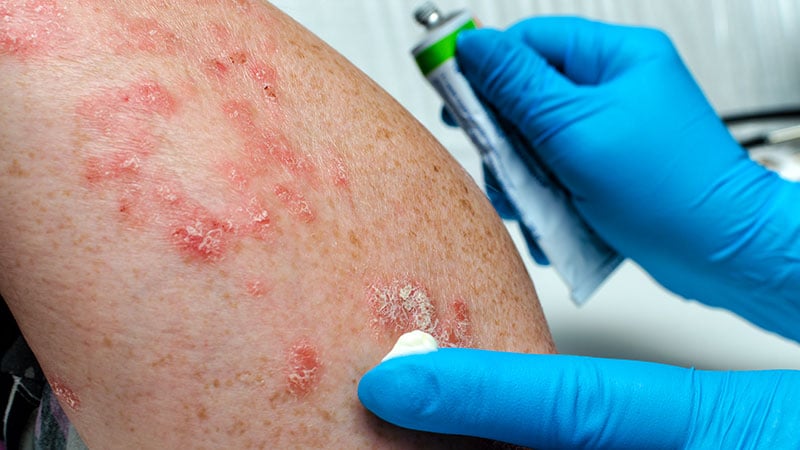Despite dramatic treatment advances in recent years, the dermatology community has lacked a unified definition for what remission means in plaque psoriasis. Now, a multistage Delphi consensus process involving nearly 100 stakeholders — dermatologists, patients, payers, and others — has yielded a proposed benchmark: 0% body surface area (BSA) involvement or an Investigator Global Assessment (IGA) score of 0 sustained for at least 6 months while on treatment.
Published online on June 18 in JAMA Dermatology, the consensus statement reflects the work of the Remission Workgroup of the National Psoriasis Foundation, which sought to clarify a concept increasingly relevant in clinical practice and research.
“Defining on-treatment remission in plaque psoriasis represents a meaningful step forward for the field,” April W. Armstrong, MD, MPH, University of California, Los Angeles, and coauthors wrote. “Until now, the absence of a clear, consensus-based definition has hindered the ability of clinicians, researchers, patients, and payers to uniformly evaluate treatment success and long-term disease control.”
Why This Matters
The need for a shared definition stems from growing interest in treatment endpoints that go beyond a 75% improvement in the Psoriasis Area and Severity Index (PASI) and minimal disease activity. While off-treatment remission has been loosely defined in prior work, on-treatment remission — where patients experience complete skin clearance while continuing therapy — remained undefined, according to the authors.
The consensus group emphasized that having a measurable, time-bound goal for remission is not only clinically useful but also deeply meaningful for patients. During pre-Delphi interviews, patients defined remission as “the complete absence of signs and symptoms,” including flares, pain, itch, and redness.
The Process
The consensus was developed through a systematic literature review followed by a multistage Delphi process. The review identified 106 studies and 41 unique definitions of remission, but very few included duration of disease control as a criterion.
To address this, the workgroup engaged 92 stakeholders: 13 patients, 25 clinicians and researchers, 6 payers, 7 life sciences professionals, and 41 psoriasis specialists (dermatologists, rheumatologists, and one cardiologist) in the Delphi rounds.
The final definition — BSA of 0% or IGA of 0 sustained for ≥ 6 months while on treatment — was chosen for its clinical feasibility and potential for global adoption. The Delphi participants agreed that both prescription and nonprescription treatments (including phototherapy, dietary, and physical interventions) may qualify as “on treatment.”
What About PASI and Patient-Reported Outcomes?
Although a PASI score of 0 also reached high agreement levels, BSA and IGA were selected for their simplicity and wider global utility, according to the authors. Patient-reported outcomes and biomarkers were not included in the definition to preserve feasibility in both clinical trial and routine practice settings.
The group acknowledged these omissions, stating that “remission can include patient-reported outcomes and biomarkers,” but also noted limitations in validation and practical implementation.
Implications for Practice
According to the workgroup, the proposed remission benchmark is meant to guide therapeutic conversations and expectations — setting a higher bar than low disease activity or a PASI 90 score. It also provides a common language for use in research, clinical practice, and payer evaluations.
For clinicians, the definition offers a framework for deep, sustained control. For patients, it introduces a tangible and empowering treatment goal. For industry and regulatory stakeholders, it creates consistency for evaluating therapies.
“Achieving this standard for on-treatment remission will likely result in a deeply meaningful impact on the lives of patients with psoriasis,” the authors concluded.
The study was funded by the National Psoriasis Foundation. All authors are members of the Remission Workgroup of the National Psoriasis Foundation, and many reported having financial disclosures with many pharmaceutical companies.
Jennifer Fisher is a Connecticut-based dermatology physician associate and freelance medical writer.
Source link : https://www.medscape.com/viewarticle/experts-reach-consensus-defining-treatment-remission-plaque-2025a1000i0g?src=rss
Author :
Publish date : 2025-07-08 05:42:00
Copyright for syndicated content belongs to the linked Source.
